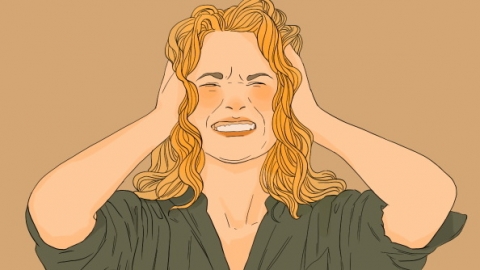What should be done about depression and anxiety
Under normal circumstances, depression and anxiety may be caused by imbalances in neurotransmitters, irregular sleep patterns, neurasthenia, anxiety states, or depressive episodes. It is recommended to seek medical attention promptly, identify the underlying cause, and then improve symptoms through lifestyle adjustments, medication, and other methods under a doctor's guidance. Specific analysis is as follows:

1. Neurotransmitter imbalance: Stress or trauma can disrupt the secretion of serotonin and dopamine, leading to low mood and anxiety. Engaging in 30 minutes of aerobic exercise daily helps promote neurotransmitter release. Consuming deep-sea fish, nuts, and other foods rich in Omega-3 fatty acids can also assist in regulation.
2. Irregular sleep patterns: Staying up late or having inconsistent sleep schedules prevents proper brain recovery, worsening emotional issues. Aim to go to bed before 11 p.m. each night, avoid electronic devices one hour before bedtime, and use foot baths or white noise to aid sleep, ensuring 7–8 hours of high-quality rest.
3. Neurasthenia: Prolonged mental stress leads to nervous overexcitability and fatigue, often accompanied by depression and anxiety. Follow medical advice when using medications such as oryzanol tablets, vitamin B1 tablets, or Anshen Bunao Liquid. Reserve 20 minutes daily for meditation to relieve nervous tension.
4. Anxiety state: Persistent worry causes restlessness, palpitations, and interferes with daily life. Under medical supervision, patients may take medications such as sertraline hydrochloride tablets, paroxetine tablets, or lorazepam tablets, combined with deep breathing exercises to stabilize emotions.
5. Depressive episode: Characterized by low mood, loss of interest, fatigue, and sleep disturbances. Medications such as escitalopram oxalate tablets, mirtazapine tablets, or venlafaxine hydrochloride sustained-release tablets should be used as prescribed, along with cognitive behavioral therapy to improve condition.
Avoid stimulants such as coffee and strong tea in daily life, and communicate more with family and friends. Cultivate hobbies like painting or gardening to divert attention. Through regular routines and scientific interventions, depressive and anxious feelings can be gradually alleviated.






